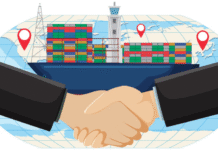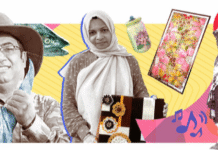
Back in the day, when a child was born, the elders used to plant a tree in the baby’s name, implying that the tree will grow with the baby and help the baby with fruit and shade when they grow up. The plant was nurtured and cared for, just like the newborn was nurtured and cared for. They said, a child and a plant can be no one’s enemy. The two go hand in hand, in innocence and life.
The ecosystem is the source of food for almost all beings—human, plant and animal. The sea provides fish to humans, food for its sea creatures and a home for all life within it. The same goes for mountains, forests and beaches. The ecosystem also provides livelihoods for the people in it.
Times, however, have changed. The care that was once reciprocal has become more and more one-sided. What was once seen as an inherent part of life is now only viewed as a money-making machine. The tree that once bore pure fruit is being injected with fertiliser and chemicals for artificial produce that stays outwardly fresh for longer. The quality of such food is questionable at best and has been associated with multiple diseases. The tree which once gave cool relief is being chopped off for industrial space to create factories, and homes and tourism spots for those who can afford it. Rivers which once gave fish are now filled with waste, causing damage to aquatic flora and fauna.
While these are seemingly direct interactions with nature, there is another, more indirect impact that human technology has had on nature. We have left carbon footprints through convenience appliances like air conditioners, refrigerators, cars and washing machines. Plastic and chemicals are hiding in everyday products, like face wash and toothpaste, which ultimately make their way to the stomachs of innocent sea creatures. In our quest for a fast-paced life, we have unknowingly and knowingly caused great anguish to the environment in which we live.
We humans are a species considered to be much above others in terms of intellect. However, we may have proved ourselves unworthy of such a stature. Individually, institutionally, nationally and internationally, we have all played our collective parts in the ruin of nature and consequently, ourselves.
An example of the survival spirit of nature when humans are not there to disrupt its progress is the Sagorlota, or the Beach Morning Glory, a key component of the beach ecology which had disappeared from parts of Cox’s Bazar due to the unbridled movement of tourists and the construction of structures along the beach. It is sad however, that it took something like Covid-19, for this innocent green plant to make a comeback.
On an individual basis, everything from a tissue to a brick should remind us of the heavy environmental cost that must have gone into the production of the good in question—the trees that had to be cut for the tissue and the smoke that was released into the air from the brick kiln. We—not our community and not our government, but we on an individual level—can make environmentally friendly choices, like using leftover soil from river dredging, golpata and other biodegradable material for building, and jute over polythene bags for shopping.
Only a few dollars can bring an environment friendly atmosphere to a family by providing a smoke free oven, alternate fuel, a solar powered light, surface water for irrigation, rainwater harvesting, a bicycle, a paddle boat and simple techniques to preserve foods, fruits and vegetables and organic fertilisers for a healthy life, both in city and rural areas. The effort may require some sort of a subsidy in the initial phases, but is definitely less costly than the price we would pay for harmful environmental practices.
In the end, it is all about perspective. A shift in perspective got us here, and another shift can take us back. It is up to us to bring back the time we used to nurture nature and love it for itself. If we can express gratitude for the bounties of nature, the ecological balance and biodiversity, we can make this world a better place. If we educate our children about the environment, not just with books but with practice, they can light a beacon of hope for the generations to come and save the environment.
Kazi Amdadul Hoque is an environmental and social activist, and Director-Strategic Planning and Head of Climate Action in Friendship. Email: hoqueka@gmail.com.









